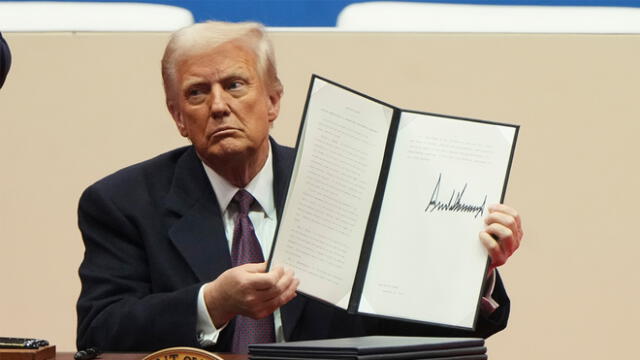Trump seeks Supreme Court's help to reinstate executive order on birthright citizenship
The Trump administration requests the U.S. Supreme Court’s intervention to narrow nationwide injunctions blocking his executive order redefining birthright citizenship, raising important questions about judicial authority and executive power.

Donald Trump is urging the country’s highest court to scale back legal barriers that have stalled his efforts to redefine birthright status. The regulation, which aims to end the automatic granting of U.S. naturalization to children born in the country to non-citizen parents, was met with immediate legal challenges. The administration argues that the injunctions overreach and hinder the president's authority to issue executive orders.
Inherent right nationality, guaranteed by the 14th Amendment, has been a central debate in U.S. immigration policy for decades. While the protocol has been in place for over a century, Trump's attempt to alter it has faced significant opposition in the courts. The Trump leadership now seeks to limit the impact of these rulings and push forward with its interpretation of membership.
Why is the Trump administration pushing to limit nationwide injunctions?
The Trump management argues that national legal barriers should be significantly narrowed to avoid overreaching judicial power. Acting Solicitor General Sarah Harris emphasized, “Only this Court's intervention can prevent universal injunctions from becoming universally acceptable.” By challenging the use of these mandates, the regime targets to move forward with its executive order without being hindered by broad state restrictions. Harris further claimed, “The Court should stay the district courts’ preliminary injunctions except as to the individual plaintiffs and the identified members of the organizational plaintiffs.”
The presidency asserts that these restrictions, which affect the entire country, undermine executive authority and the separation of powers. Harris argued that federal agencies should be allowed to begin developing guidance and preparing for the possible implementation of the order, regardless of the ongoing litigation. “At a minimum, the Court should stay the injunctions to the extent they prohibit agencies from developing and issuing public guidance,” she added.
How could the Supreme Court's decision impact birthright citizenship?
Trump’s White House’s proposed executive order seeks to redefine birthright citizenship by denying it to children born in the U.S. to unlawful immigrants or those on temporary relocation status. In tribunal proceedings, federal judges in Maryland, Massachusetts, and Washington state have ruled that this move contradicts the text of the 14th Amendment. The constitutional provision guarantees that all persons born in the U.S. are citizens, and these jurists have upheld the longstanding legal precedent. The Trump leadership, however, argues that birthright citizenship incentivizes illegal migration, pushing for a regulation change to address this problem.
In its emergency application to the highest judicial body, the administration has called for a "modest" step to roll back the judges' restrictions. Harris explained, “The Court should declare that enough is enough before district courts’ burgeoning reliance on universal injunctions becomes further entrenched.” By seeking to limit the injunctions, the governance hopes to secure the ability to prepare for a potential shift in U.S. citizenship policy if the case ultimately favors the president.












